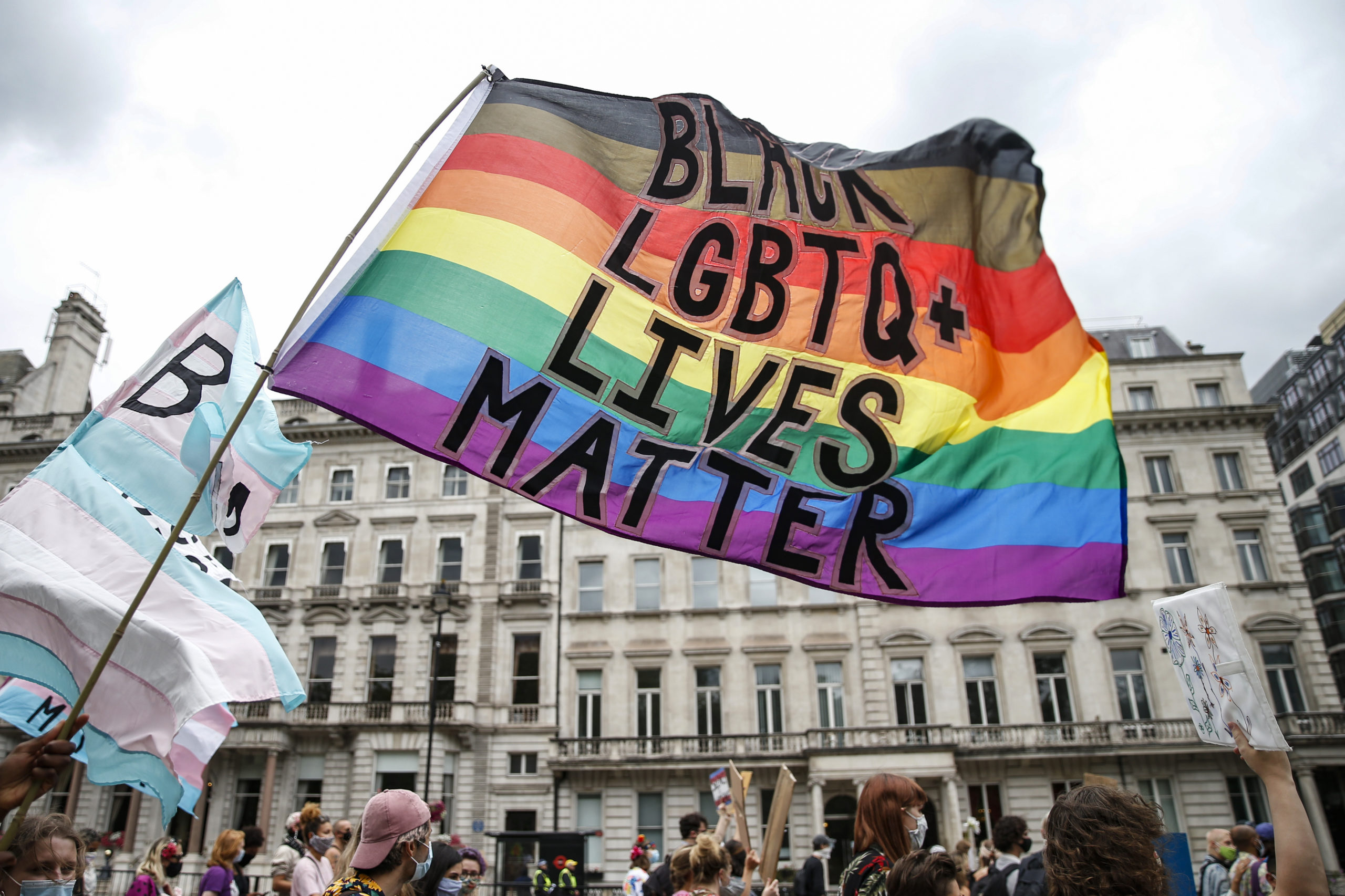Black LGBT+ lives land in the intersection of racism and homophobia. (Getty/Hollie Adams)
The COVID-19 pandemic is placing huge strain on Black queer households as decades of discrimination compound economic insecurity, a worrying new study has found.
The report released by the Movement Advancement Project (MAP) identifies American communities that are bearing the brunt of COVID-19, noting that LGBT+ households were disproportionately challenged in work, school, childrearing, healthcare, financial insecurity and social isolation.
In particular Black and Latinx LGBT+ people are facing significantly higher levels of financial insecurity, with a shocking 95 per cent of queer Black households and 70 per cent of queer Latinx households experiencing at least one serious financial problem since the pandemic began.
And more than half of Black LGBT+ households have been unable to get medical care or had delayed medical services because of the economic strain of the pandemic.
“The pandemic has disrupted life for all of us. Yet, some communities have borne the brunt: Black and Latinx people, low-income people, and, as this new data shows, LGBT+ people,” said Ineke Mushovic, Executive Director at MAP.
“Decades of discrimination on the job, in healthcare and beyond, combined with uneven legal protections around the country make LGBT+ people more vulnerable to pandemic-related instability and insecurity, with an even more devastating impact on LGBT+ people of colour.”
The long history of racial discrimination in the US is contributing to many problems, but the disparity is also seen in the wider LGBT+ community, with queer people of all backgrounds experiencing increased challenges compared to the straight population.
For example, LGBT+ households are twice as likely to be unable to get necessary medical care and four times more likely to go hungry.
Nearly two-thirds (64 per cent) of LGBT+ people and their families experienced a job loss or disruption, compared to just under half (45 per cent) of non-LGBT+ households.
29 per cent had serious problems with internet connection for work or schoolwork at home, compared with 17 per cent of non-LGBT+ families. And a quarter were unable to access prescription drugs or experienced a delay, compared to just eight per cent of straight people.
“It’s clear that the COVID-19 has amplified and exacerbated disparities that existed before the pandemic,” concluded Logan Casey, policy researcher at MAP.
“LGBT+ people were more likely to struggle with economic stability and have challenges with access to health care prior to COVID, and that’s even more true now.
“The existing patchwork of legal protections is insufficient, which is why we need a nationwide law like the Equality Act so that LGBTQ people in every community are protected from discrimination.”
